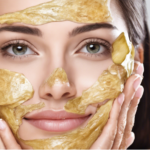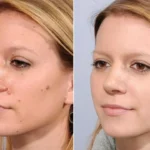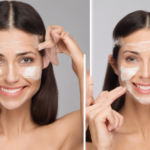10 Natural Methods to Protect Your Skin from the Sun
How to Protect Your Skin from the Sun Naturally, Discover ten natural methods to shield your skin from the sun’s rays. From wearing sun protective clothing and seeking shade to using natural sunscreen alternatives and eating skin nourishing foods. This strategy promotes healthy skin while minimizing sun damage. Follow these simple yet effective ways to enjoy the sun safely and maintain your skin’s natural beauty.

Gradual Sun Exposure
Benefits of Gradual Exposure
Gradual sun exposure is necessary to acclimatize the skin to sunlight. Allows the body to produce vitamin D naturally, reducing the risk of sunburn. Our bodies are designed to utilize sunlight beneficially; moderate exposure helps regulate our circadian rhythms, enhancing sleep quality and boosting mood through increased serotonin levels . Furthermore, a progressive exposure strategy minimizes the risk of photoaging and skin cancer, as sudden intense sun exposure is more harmful than steady exposure over time .
How to Gradually Expose Your Skin
To effectively prepare the skin for sun exposure, start with short periods. And gradually increase the time spent in the sun. Initially, it is recommended to expose the skin to less intense morning or late afternoon sun for about 10-15 minutes a day. This method helps build tolerance and reduces the risk of skin damage. Individuals should focus on exposing areas that are normally covered, such as the hands, arms, and backs of the face, to ensure adequate vitamin D synthesis without overexposure.
Best Times for Sun Exposure
The best time for sun exposure is in the afternoon. When the sun is at its highest point. This period maximizes vitamin D production with minimal time in the sun. For example, in northern latitudes, 30 minutes of exposure around noon is comparable to consuming plenty of vitamin D supplements. However, it is important to avoid the peak hours of UV rays between 10 am and 4 pm. During which there is a skin hazard. And the eye suffers the most. Instead, exposure to the sun in the late morning or early afternoon may offer the benefits of sunlight. while minimizing potential damage.
Top Antioxidant Foods
Several foods are renowned for their high antioxidant content and their ability to protect the skin from sun damage:
- Tomatoes: Rich in lycopene, an antioxidant that helps prevent sunburn .
- Sweet Potatoes: A top source of beta carotene, which absorbs UV light and neutralizes free radicals .
- Almonds: High in vitamin E, polyphenols, and fatty acids, almonds enhance the skin’s defense against UV damage .
- Salmon: Contains astaxanthin, a potent antioxidant with sun-protective and anti-inflammatory properties .
- Red Grapes: Packed with resveratrol, which improves skin defenses against UV rays .
How Antioxidants Protect Skin
Antioxidants provide a natural protective mechanism against the harmful effects of the sun by:
- Enhancing the skin’s natural sun defense, reducing the risk of sunburn and long-term sun damage.
- Supporting the repair mechanisms that fix sun-damaged skin, thus preventing premature aging and skin cancer .
Recommended Daily Intake
To effectively shield your skin from sun damage, incorporating a variety of these antioxidant-rich foods into your daily diet is essential. It is recommended to consume:
- A mix of fruits and vegetables rich in antioxidants like berries, carrots, and leafy greens.
- Nuts and seeds such as almonds and sunflower seeds. Which are also excellent sources of vitamin E.
- Fish is high in omega-3 fatty acids and antioxidants. such as salmon and mackerel to promote skin health and protection.
By incorporating these foods into their diet, individuals can naturally increase their skin’s resilience against UV rays. and can support overall skin health.
Protective Clothing
Best Fabrics for Sun Protection
When selecting clothing for sun protection, the fabric’s Ultraviolet Protection Factor (UPF) plays a crucial role. Fabrics like polyester and nylon are highly effective in blocking UV light due to their tight weave and ability to disrupt UV radiation . Darker and more saturated colors enhance protection as they prevent more UV rays from reaching the skin . Additionally, special treatments such as chemicals and dyes that absorb UV light can significantly boost a fabric’s UPF rating .
Protective Clothing Styles
To maximize sun protection, it is advisable to choose clothing styles that cover more skin. Long-sleeved shirts, long pants, and wide-brimmed hats are recommended to shield exposed skin areas effectively . Garments designed with extended coverage features like flip-up sun collars and cuffs that extend over the back of the hands enhance protection further . Additionally, clothing with vents and a looser cut can provide both sun safety and comfort by allowing air circulation without compromising on coverage .
UPF Ratings Explained
UPF rating is a standard that measures how much UV radiation a fabric allows to pass through. For instance, a UPF rating of 50 means that only 2% of the sun’s rays can penetrate the fabric, offering excellent protection . Clothing with a UPF rating of 30 to 49 provides very good protection, while a rating of 50+ is considered excellent . It’s important for consumers to check for UPF ratings on garment labels to ensure they are getting the level of protection needed .
Natural Oils and Extracts
Coconut Oil Benefits
Coconut oil, often celebrated for its moisturizing and antioxidant properties, has been used traditionally as a mild form of sun protection. Historical usage by islanders involved applying a thin layer of coconut oil to shield their skin from the tropical sun, utilizing its properties to improve skin tone, prevent sunburn, and repel insects . While modern studies suggest coconut oil has an SPF around 7, it does not provide the recommended level of sun protection needed for effective UV blocking . However, its hydrating qualities make it excellent for soothing the skin and aiding in post-sun recovery, particularly in reducing redness and peeling from sun exposure .
Carrot Seed Oil Properties
Carrot seed oil, derived from the seeds of the carrot plant, is noted for its natural sun-blocking characteristics, although it lacks an official SPF rating. This oil is rich in antioxidants like carotenoids and vitamin E, which help protect the skin from UV damage and reduce the risk of premature aging . Its ability to provide some level of protection against both UVA and UVB radiation makes it a valuable addition to natural sun care routines . Moreover, carrot seed oil is known for its hydrating and nourishing properties, helping to maintain skin moisture and health .
Raspberry Seed Oil for Sun Protection
Red raspberry seed oil is gaining recognition for its potential sun protective effects, particularly its ability to absorb UVB and UVC rays. However, it offers limited protection against UVA rays, which are responsible for most UV radiation related skin damage . While not sufficient as a standalone sunscreen, raspberry seed oil can complement sun protection measures due to its anti-inflammatory and antioxidant properties . It contains vitamins A and E, which support skin health by promoting cell regeneration and reducing oxidative damage . Raspberry seed oil is also noncomedogenic, making it suitable for facial use without clogging pores .People benefit from sun protection from the nutrients they eat.
Hydration and Skin Health
Importance of Hydration
Reducing moisture helps skin stay soft, supple and beautiful. Cold, on the other hand, is cold, wet. And it can damage the skin. This increases the risk of sun damage and other UV damage. The water temperature is below the temperature. Because our bodies adapt to daily life and exercise.
Best Hydrating Foods and Drinks
Incorporating water-rich foods into your diet is an effective way to enhance hydration. Watermelon, for instance, is 92% water and contains lycopene, making it exceptionally good for hydration and skin health . Cucumbers, melons, tomatoes, and apples are also excellent for maintaining hydration due to their high water content. Additionally, drinking herbal teas or fruit juices diluted with water can provide hydration while offering a variety of flavors.
How Water Protects Skin
Water plays a protective role for the skin by maintaining the lipid barrier, which prevents moisture loss and shields the skin from environmental damage. Hydrated skin cells function properly, reducing the likelihood of inflammation and infection. Regular water intake helps to flush out toxins, which can lead to clearer, more radiant skin. Furthermore, hydration can control oil production on the skin’s surface, thus reducing the risk of acne breakouts.
Conclusion
Adopting natural sun protection techniques keeps your skin free of harmful chemicals. From wearing protective clothing and hats to seeking shade during peak hours. These exercises promote skin health. and reduce the risk of sun damage. Adopting these habits not only preserves the natural beauty of your skin. It also encourages a healthy lifestyle in the most basic of ways.
FAQs
1. What foods can naturally protect your skin from the sun?
Foods rich in carotenoids, such as sweet potatoes and spinach, can naturally protect your skin from sun damage. Beta carotene in these foods helps reduce skin redness caused by UV exposure. Other beneficial foods include carrots, mangoes, apricots, cantaloupe, and kale, which are also high in carotenoids like lutein, known for its skin-protective properties.
2. What are five effective ways to protect your skin from the sun?
To safeguard your skin and eyes from the sun, follow these five sun-safe habits:
- Always check the UV Index forecast before going outdoors.
- Apply sunscreen properly and reapply it every two hours, or more frequently if you are swimming or sweating.
- Dress in protective clothing, such as long-sleeved shirts, pants, and broad-brimmed hats.
3. What are some natural UV blockers found in plant oils?
Certain plant oils act as natural sunscreens. For instance, sesame oil can resist up to 30% of UV rays. Other oils like coconut, peanut, olive, and cottonseed oils provide about 20% UV protection.
4. How can I protect my skin from the sun effectively?
To effectively protect your skin from the sun, adopt the following sun safety tips:
- Wear protective clothing such as long-sleeved shirts, pants, broad-brimmed hats, and sunglasses.
- Use broad-spectrum sunscreens with an SPF of 15 or higher as directed, and reapply at least every two hours, or more frequently if engaging in activities like swimming or sweating.







